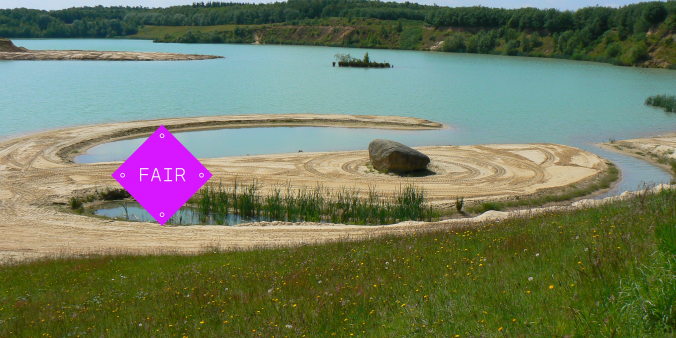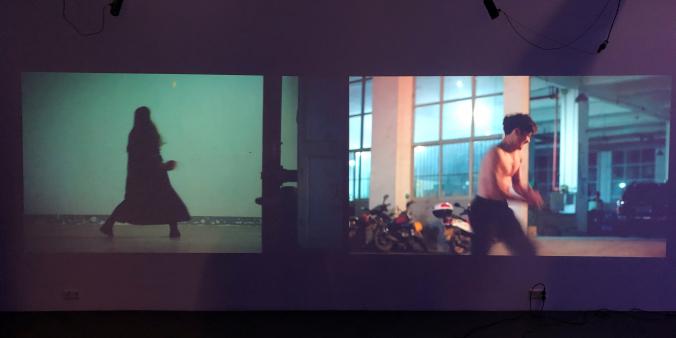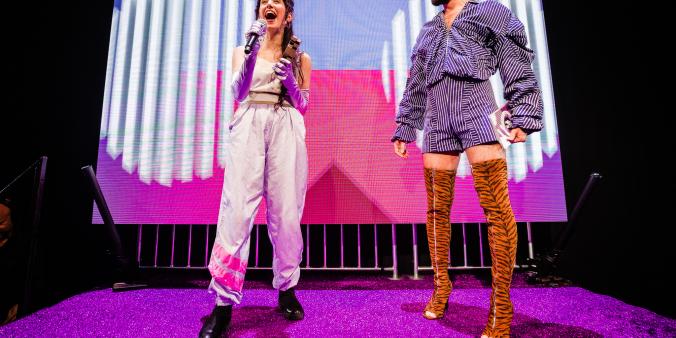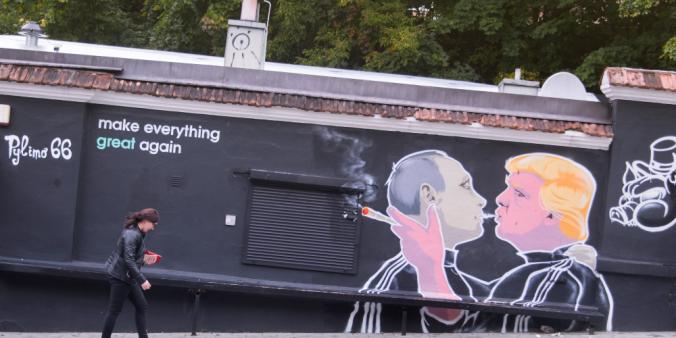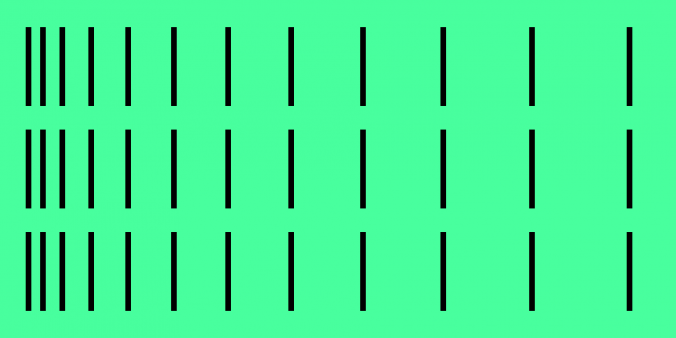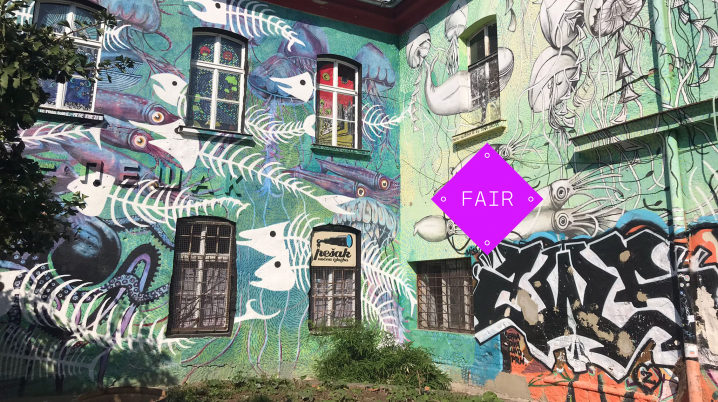
Blog: 'Reshaping the Art World: An Experiment in Collaborative Change-making'
Friday 24 September 2021
What do the artists and participants at Reshape think needs to be Reshaped in the transnational cultural arts ecosystem?
Renske: Yesterday the conference of Reshape ended with a panel discussion about decolonisation, degrowth and art. In a way, it felt like a new beginning. The topics of decolonisation and degrowth could be felt throughout the Reshape program, but focusing on them now felt like a bridge to a reality, with very real and interconnected crises.
The question on which story we were telling, or appropriating, never left the air. Lebanese artist and speaker at the panel Raafat Majzoub said: “I find it interesting that we are starting from the premise that things are unsaid. That there is a margin even in conversations about decolonisation, liberation, degrowth, and revolution.”
Quickly the need to "leave our spaces, and listen to those who feel and live the experience" gained importance, after Amanda Piña, decolonisation artist and speaker at the first panel, brought her native Chilean and Mexican heritage to the table.
On the question of how, no answer was offered. Raafat Majzoub did propose strands of inquiry about the way we look at problems and time: “Like the world around it, the art world perpetuates urgency. (…) Urgency creates a place where problems become the center, where resources must be deployed in service of its solutions. And we make room for sacrifice. In my budget sheet, it becomes accepted – by you and I – that the cost of my artwork comes at the cost of me making it." Watch the recorded video here.
Thursday 23 and Friday 24 September 2021
Recap: Reshaping Policies and Arts Support
Laurens: These sessions were organised on Thursday and Friday to connect ‘policy makers’ through a discussion on the values of the organisations they represent. It brought together various individuals from to the British Council (UK), Pro Helvetia (CH), Goethe Institut (DE), IETM and Creative Europe (BE) and national and local governments (HU and PT). We all sensed that we were missing our peers from outside the European Union that could voice their perspectives on the issues and values we discussed related to the Reshape prototypes.
We started in a typical circle with our notepads on our laps, but we quickly broke away from the static scenery and divided ourselves into little groups. We were asked to really dive into the prototypes and discuss what they meant for us, and took our time brainstorming about this. Renske and I talked with Steven Brett from the British Council about current issues in the cultural sector and values that we do not see enough of in our current environment but that we would like to develop. We focussed on the prototype ‘Civil Imagination as a Radical Act’ and discussed how diversity in our organisations could be achieved through inviting external diversity advisors for advice and monitoring of this process on a continuing basis.
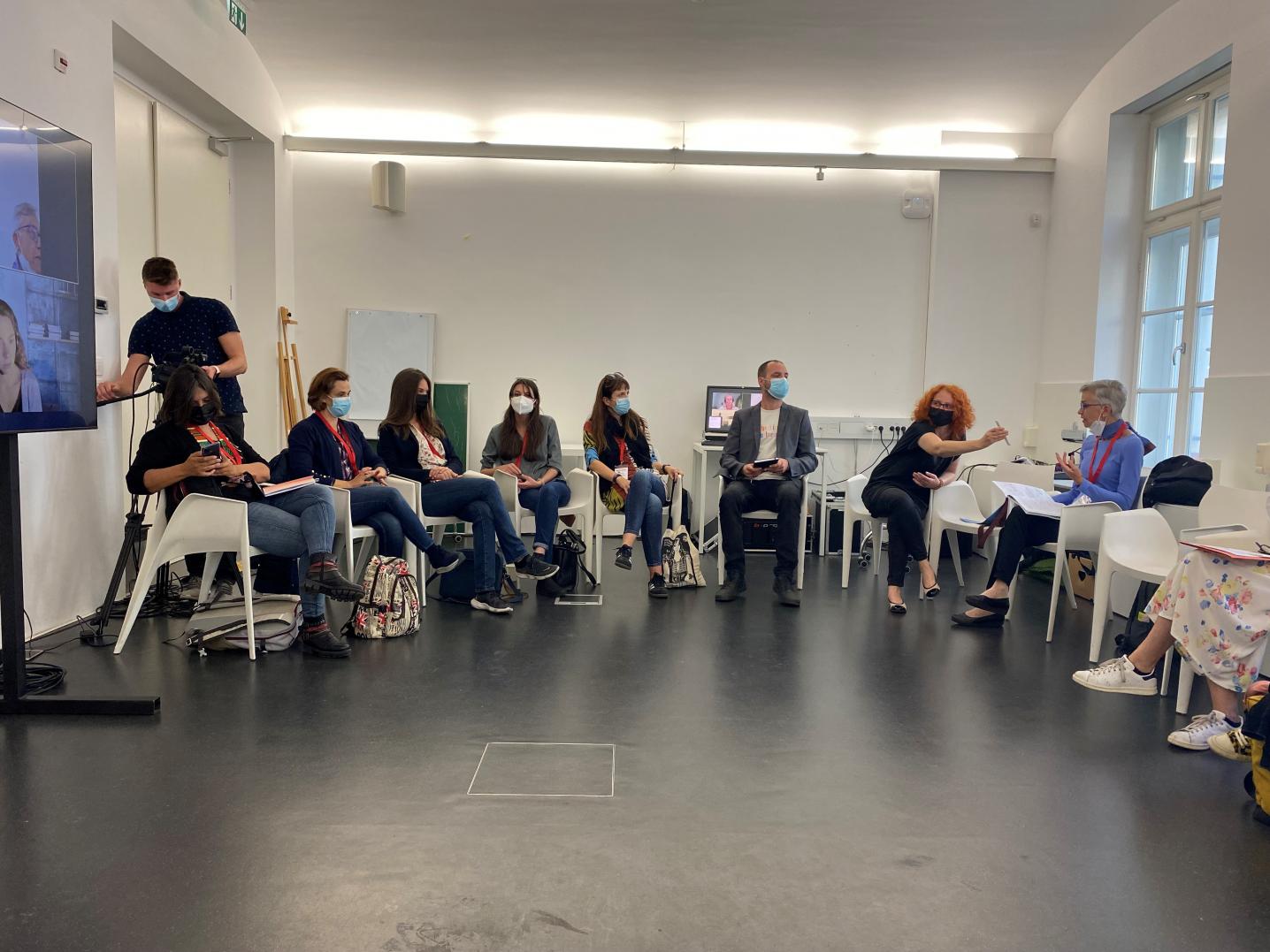
Thursday 23 september 2021
Recap: The Art of Disobedience
What do the artists and participants at Reshape think needs to be Reshaped in the transnational cultural arts ecosystem?
Renske: Valeria Graziano, co-founder of the transnational collective-learning project Pirate Care, was the first speaker of the panel discussion about 'art of disobedience'. The discussion was activating, historical and relevant, and not only because it was the first panel I ever saw with only women at the table, that wasn’t specifically about feminism.
Valeria was the second speaker, and she took us through the historical relation between political disobedience and the established art houses, pointing out that in the past thirty years ‘public programming’ took a rise, in which art houses make room for humanist, political and social programs alongside artistic programming.
And though one might think: bigger stages, bigger impact, Valeria actually warns us for this trend and thinks it needs to be reshaped: "Art houses shouldn’t program events with a political thematic, that do not have any political consequences. Artistic resistance and disobedience is better kept in small community spaces, where they can keep growing away from the spotlights."
Another speaker, Chilian-Mexican choreographer and decolonisation artist Amanda Piña, connected with Valeria’s concern about where change is fostered and who participates in it. Quoting the iconic queer, black, feminist poet Audrey Lorde, she says: “For the master's tools will never dismantle the master's house”. Watch the recorded video here.
Thursday 23 September 2021
Recap: A Tarot Deck to Reimagine the Arts
Arda: The Call is the first card we draw. I expected this card to show us the direction of the journey ahead, a future vision of the cultural sector and the direction we have to give it. Instead, the card raises many questions: Who or what is calling us? What is our calling? How do we respond to a call for change?
This tarot session is the first Reshape workshop I attend. We have moved outside, from Ljubljana's Contemporary Art Museum to the playground next to it. With a small group of about eight people we are sitting on the ground in the bright morning sun, creating a circle around the small stack of tarot cards that is the focus of our attention. We stare intently at the image of The Call: an ambiguous image of duality and tension, with two elements that are connected through a sort of tentacles – or are they roots? Together, we explore the image and its layers of meanings and contradictions in an associative manner. Slowly an imaginative conversation unfolds about the challenges we face in the cultural sector.
Among us is Petr Dlouhy, the Reshaper who is part of the Transnational and Postnational Practices research group. For three years they collectively developed this tarot game as a tool for organisational change. Petr proposes to lay five cards that each signify a specific step in the symbolic journey.
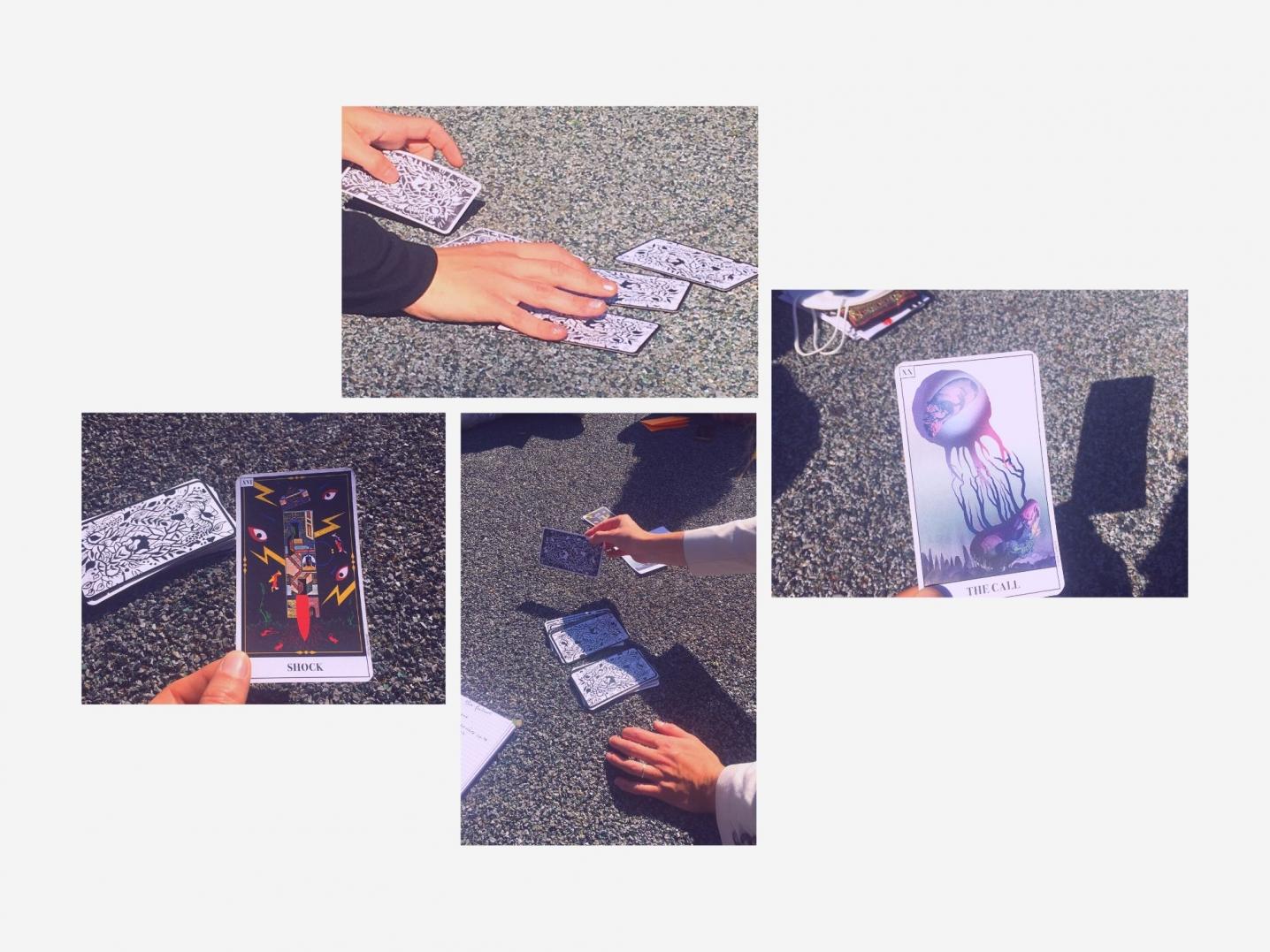
After The Call, the powerfully illustrated Shock card is turned around by one of the participants. The card reveals us the journey ahead and the obstacles and detours we might encounter on the way. We learn that Shock also signifies a 'break' in the sense of a pause as well as breaking something with force. The next, showing us what the resources are that we already have, turns out to be The Canon, which leads to a critical discussion about the notion of a canon in the arts. Fittingly, the fourth card leads us directly to the question How to End existing structures and open up to something new. After these heavy hitters, the final 'hint' card ends the tarot journey on a positive note with the hopeful, radiant card The Garden. We imagine nurturing, cycles of growth and decay, a future of sustainable care and contentment.
Petr ends the session by gifting us a Ritual: a proposal for a small action, that brings about a small shift or change on an individual level. These Rituals are part of the Sensing the Journey tool that this Reshape group developed to address the unsustainability of many current international practices: from hypermobility to exclusion, othering and exoticism, and ecological neglect.
What I appreciate about these tarot cards, is that they enable us to think about the challenges the cultural sector faces on a different level. They have been described as a tool to self-evaluate the future. Without mysticism, but with a touch of magic, they enable a new way of having a conversation about the future by building upon each other's assocations in an open, imaginative way. Guided by the cards, together we associatively spin narratives that form a mosaic of different perspectives and outlooks on the now and the possible future.
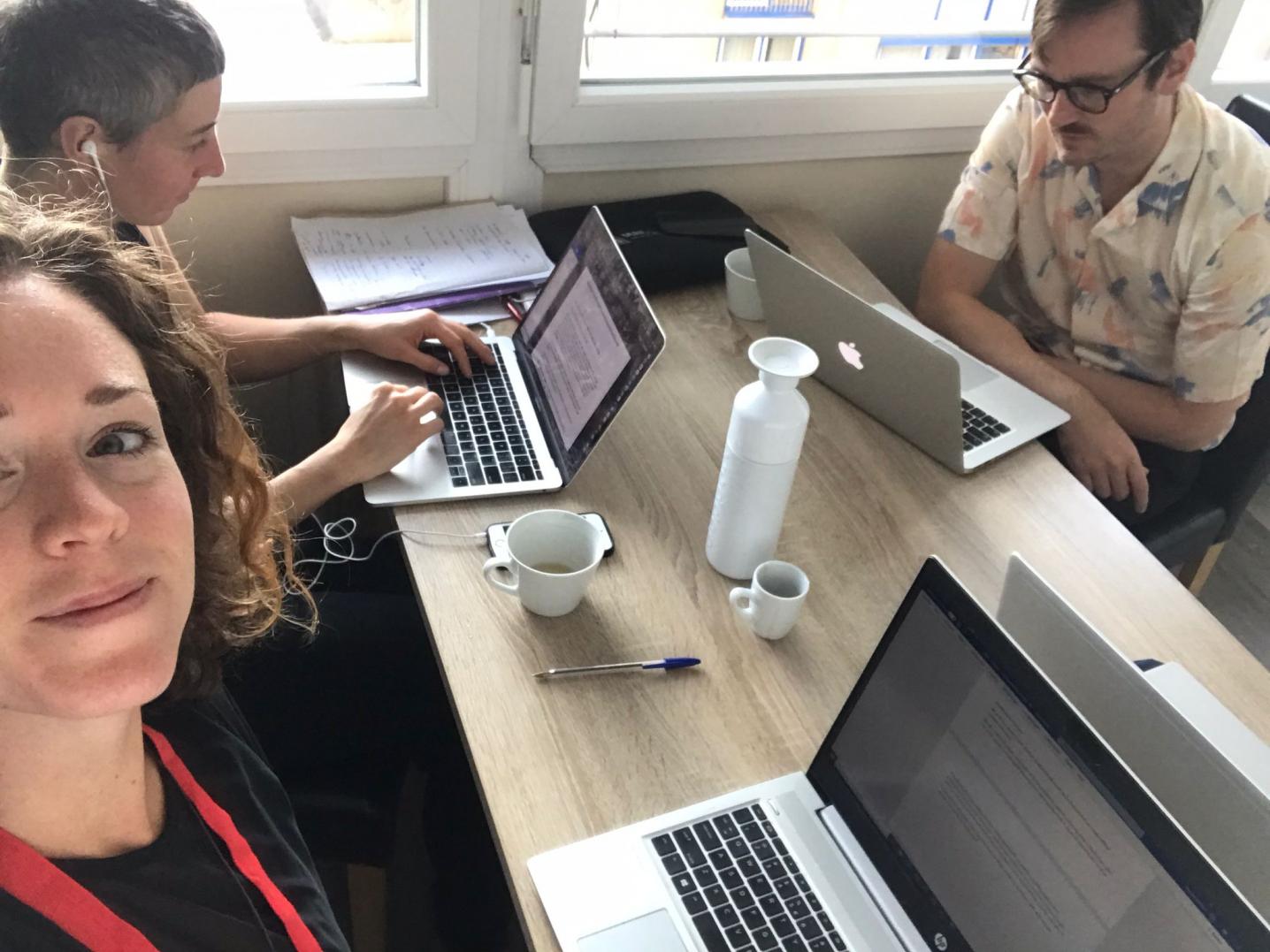
Wednesday 22 September 2021
Travelling by train & preparing for the Reshape conference
Early in the morning on Wednesday, we depart on the train from Amsterdam to Ljubljana. Slowly the environment changes from flat meadows to green hills and mountains, while we discuss our expectations and goals for the Reshape conference. Find out here what each colleague hopes to achieve in the coming days:
Renske: In the prototype Governance Of The Possible, developed by the Reshapers Helga Baert, Martin Schick and Sam Trotman, I read "We call for institutions, art funders, governments, and artists to join a shift of paradigm moving from the survival of the individual towards the collective survival of the living, the free and of justice." I feel honored to attend their workshops and excited to discover how DutchCulture can answer to this call, to take home concrete tools that can help us and our local international artists to make sustainable changes.
Laurens: I am attending the conference to learn how to think about artistic mobility and migration beyond my legal training. I'm inspired by Reshape's Transnational and Postnational Practice Manual that puts it strikingly: "While working beyond and despite borders, we are not necessarily working ‘inter’-nationally; meaning using our nation states to define us. But rather ‘trans-’ or ‘post-’ nationally; queering or diminishing the importance of national borders by placing the similarities and differences elsewhere than in national identity."
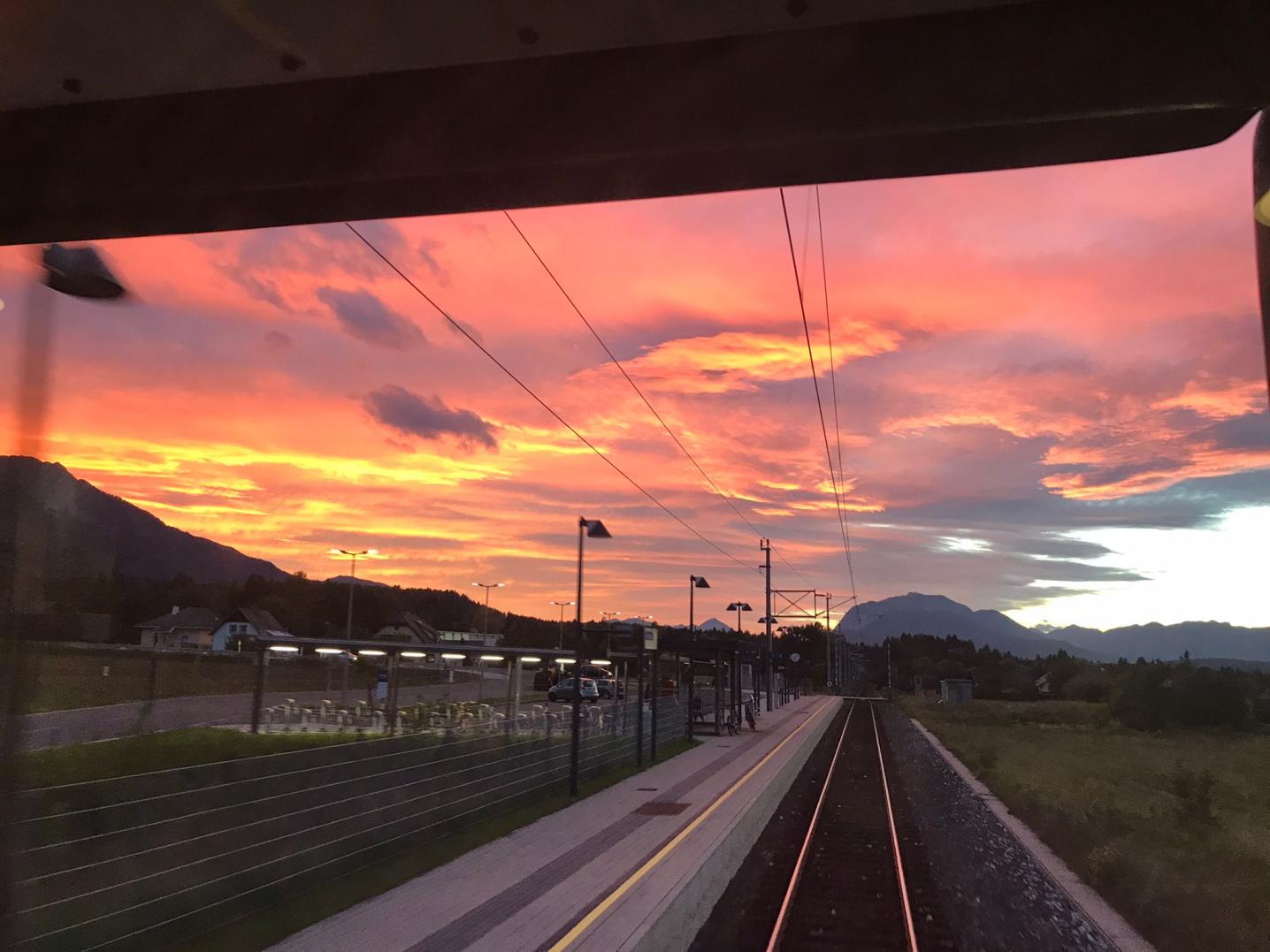
Arda: This conference is an amazing opportunity to meet Reshapers that TransArtists has been collaborating with. The Reshape network's research adresses issues and topics that are urgent and relevant for host organisations offering artist-in-residences all over the world. One of the strategies to improve the cultural sector from within is to focus on reciprocity. This resonates with me personally, and I intend to put this into practice when making new connections with artists, residency hosts and local networks. Because I, too, strongly believe in the transformative potential of us individuals that shape cultural organisations and with that, the entire cultural sector.
In the words of the Reshape network: "During our research we chose to focus on the change-making potential of every single individual within the art field. Not in a neoliberal effort to redirect responsibility for change to the individual, but rather as a mystical provocation where we believe that every act we perform within our organisations or practice can be an instigator of change. Driven by a radical belief in interconnectedness, we acknowledge that when one part changes, the whole system changes. So how can we tap into that potential?" 1
Geke: Reshape stimulates artists, policy makers and other people who are active in the cultural field to imagine a fairer arts ecosystem and translate this into concrete plans. I am hoping to learn how this can be communicated to different audiences to set forth real change. I'm also excited to meet new people to exchange ideas and experiences.
Background information
DutchCulture attends the international conference 'Reshaping the Art World: An Experiment in Collaborative Change-making' from 23 until 25 September 2021 in Ljubljana, Slovenia, to join in on the conversation on the future evolution of the arts sector. It is an exploratory visit to find out how the content of the research links to fairer international cultural collaboration, mobility and international arts residencies. DutchCulture's Arda van Tiggelen (Transartists), Laurens Meijer (Mobility Info Point), Renske Ebbers (country advisor Belgium and Germany) and Geke Dijkstra (Communication and Marketing) will be posting daily updates from the conference to share new insights and inspiration.
Sources:
1. Transnational and Postnational Practices Manual from RESHAPE: A workbook to reimagine the art world (2021). Chapter by: Martinka Bobrikova & Oscar de Carmen, Pau Catà, Petr Dlouhý, Heba el Cheikh, Gjorgje Jovanovik, Marta Keil, Dominika święcicka, Marine Thévenet, and Ingrid Vranken.
